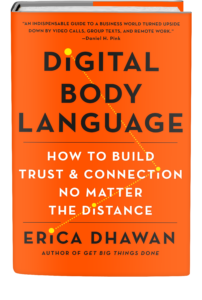
Image courtesy of Master isolated images / FreeDigitalPhotos.net


Image courtesy of Master isolated images / FreeDigitalPhotos.net

Image courtesy of David Castillo Dominici / FreeDigitalPhotos.net
1) Choose a life of impact over a social life. It's harder but you won't regret it. It’s a choice. They aren’t mutually exclusive of course, but sometimes we need to make a choice between the "important, long-term" mission and the "short, fun" event or initiative.
2) Take responsibility, not authority. There is a big difference between authority and responsibility. Authority is a form of control, responsibility is a form of influence.
3) Don't stop engaging in the arts. What brings us laughter, song, dance and joy are what brings us vitality, happiness and innovation. What is the next artistic challenge you will take on? Mine is Haitian Dance!
4) Create the optimal filters. Sometimes advice is the exact opposite of what you need to transform. Questions from a select few may do the trick.
5) Practice self-love. Be your own best friend. When we stop being hard on ourselves and trust our intentions, we create space for more love and gratitude around us.

Red2000 | Dreamstime Stock Photos | Stock Free Images
Do you agree most people know what they want to be? If so, do they just need a little push to march on the right path?

Slidepix | Dreamstime Stock Photos | Stock Free Images
What trail are you leaving?

Image courtesy of renjith krishnan / FreeDigitalPhotos.net
2. What is the perfect place to work? Here is an article showing some characteristics of a truly great workplace.
3. While some workplace stress is normal, excessive stress can interfere with your productivity and impact your physical and emotional health. Here are tips to reduce and manage job and workplace stress.
4. This is one of the diciest challenges of office politics, one that invades the cubicle farm and executive suite alike: How to deal with workplace whiners.
5. "Don't just Hear- Listen." One of the tips for effective workplace communication. To improve communication within your team and throughout your entire company, you need to implement a few easy but important changes to your corporate philosophy and practice.

Image courtesy of Master isolated images / FreeDigitalPhotos.net
1) Understand your Assumptions: What are you asking and why are you asking it? What would you ask if you reversed your assumptions [i.e., When reimagining cars, what if you let go of your assumptions about drivers? Meet, driverless cars (thanks Google!)]?
2) Invite Openness: How do you invite others to help you think through the question? Instead of starting a question with "why not…" how about asking "what if…"?
3) Create Trust: Engage others so they feel they can be part of your questions. Ask: "How do you feel you are resonating with this question?" or State: "What I'm hearing you ask is…"
4) Stop being married to your questions: Practice asking more provocative questions: instead of "What's not working?", ask "If we were to achieve an outstanding service award, what would we celebrate"? (check the book Kill the Company by Lisa Bodell for more provocative questions).
5) Understand the role that questions play: Questions are meant to explore, spark, inspire–they don't solve the problem. They help uncover the key instruments that allow for solution generation. Start at questions and use the thread of dialogue, dissent and discovery to uncover the solution.

Sumos | Dreamstime Stock Photos | Stock Free Images
Best way to do this is by building your connections with those who can then steer you in the right direction and, most importantly, will never let you give up.
 1. Bryan Mahoney's article, Innovation Strategy goes on to identify top five strategies to address innovation, one of which entails the creation of culture of innovation by promoting and rewarding entrepreneurship and risk-taking.
1. Bryan Mahoney's article, Innovation Strategy goes on to identify top five strategies to address innovation, one of which entails the creation of culture of innovation by promoting and rewarding entrepreneurship and risk-taking.
2. This article in Innovation Excellence by Paul Hobcraft expresses that organizations should not rely on a single innovation function, it must integrate with the entire organization.
3. How does a company like Google continue to grow exponentially while still staying innovative? Susam Wojcicki, Google's Senior Vice President of Advertising, discusses some of the processes and principles in place to make sure that the company doesn't get bogged down in the past as it keeps moving forward. 8 Pillars of Innovation
4. Today, we’re on the brink of a new digital paradigm, where the capabilities of our technology are beginning to outstrip our own. Computers are deciding which products to stock on shelves, doing legal research and even winning game shows. They will soon be driving our cars and making medical diagnoses. Here are five trends that are driving it all.
5. 7 Tips to Speed Time to Innovation: This article delves into the goals every organization should work toward to boost product development performance, looks at how these goals further a product organizations ability to bring innovative products to market, and outlines the ways that a Product Portfolio Management (PPM) Solution helps comapnies reach these goals.

Image courtesy of Stuart Miles / FreeDigitalPhotos.net
1) Starting a business too quickly: In the past, I started a business way too quickly. I had business partners and didn't realize what it takes to build strong trust with people around me and make sure they were the right people. Also, I took on many projects at the same time thus getting nothing done. Be careful to say no to an offer even if you can't believe you got it–you'll get better ones if you keep striving and doing good work. What are you doing "too quickly"? What could you say "no" to this week so you can say "yes" to something else?
2) Letting emails overwhelm me: Email overload can be the worst. In the past, I've found myself dictated by a schedule by others rather than setting myself free to plan my work. Now I use applications and set core days and times for email responses–and I'm 10x more productive. Here are a few key ones I use: Self Control, Other Inbox, Boomerang, YouCanBookMe. What could you try to improve your email productivity?
3) Surround yourself by only the best for you: Why do Tony Robbins and Richard Branson hang out? Because as you grow and reinvent yourself, you need to continue to 'seed your garden' of relationships with people that inspire you. Over time, relationships must change–be around people that push you to be better, challenge you, and help you grow and accept sometimes you may need to let some relationships go. Who are the new people that inspire you that you'd like to connect with?
What are hard mistakes you've made? What have you learned from them? Tell us in the comments below.
If you enjoyed this article, get exclusive access to a FREE private collection of leadership and career tools by email here.

Aaleksander | Dreamstime Stock Photos | Stock Free Images
Copyright ©2026· Erica Dhawan, LLC. All Rights Reserved